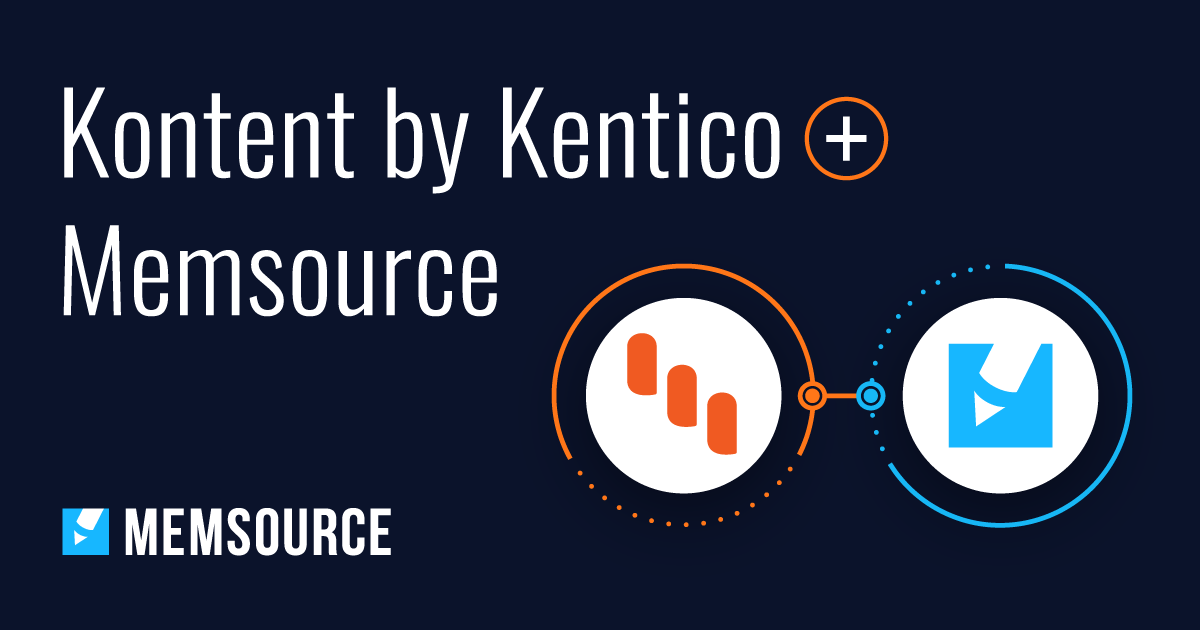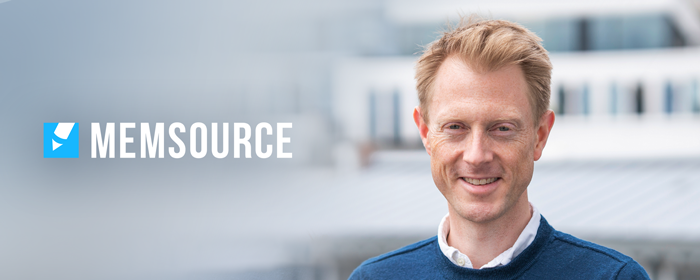
Blog
Contents
Machine Translation Report
What is the optimal MT Engine for you? Find out in the latest MT Report by Memsource.
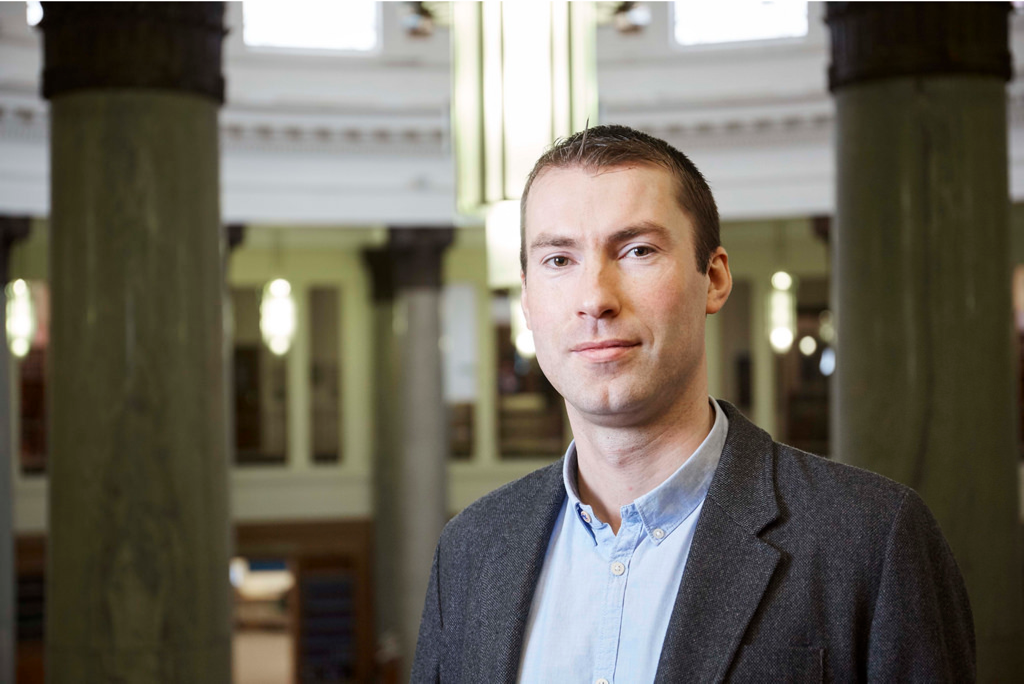
Dragoș Ciobanu leads the MA program in Applied Translation Studies (MAATS) at the University of Leeds. Before coming to Leeds in 2003, Dragoș worked as an in-house translator and technical writer and studied languages and translation. While working on his PhD, he contributed to several international projects that were training linguists on the latest translation technologies available and he became increasingly involved with professional organizations such as the ITI, CIoL, and BDU before leaving to spend time in the e-learning field.
“I have always been really interested in training, technology, and languags,” he explains, “so even after spending five years in the e-learning field, it felt natural to come back to the Centre for Translation Studies (CTS) to manage the MAATS program, establish new relationships with industry partners, and build the team who teaches its project management and computer-assisted translation technologies components.”
“The initiative of CAT tool providers to provide free software for educational purposes has an immensely positive impact on the whole industry.”
Dragoș’s team joined the Memsource academic program in 2016 because they “felt that Memsource is a mature and highly capable environment, which our students should be familiar with.”
“The initiative of some, but unfortunately not all CAT tool providers, to make their software available for free for educational purposes is outstanding and has an immensely positive impact on the whole industry,” he added.
“Being able to experience a full localization workflow, share resources and assets, collaborate on several linguistic and project management tasks, and learn how to automate the repetitive parts of the process are all highly valuable skills, which I strongly believe that all linguists should be aware and fully appreciative of,” Dragoș concluded.
“It is no longer realistic to expect translation graduates to become successful linguists without a strong understanding of the technologies.”
We asked Dragoș how a present-day translation program should look and if he could reveal some tips for translation students on how to start and maintain a successful translation career. He provided such thorough answers, we thought it would be wise to save them and release them in their own article - stay tuned…
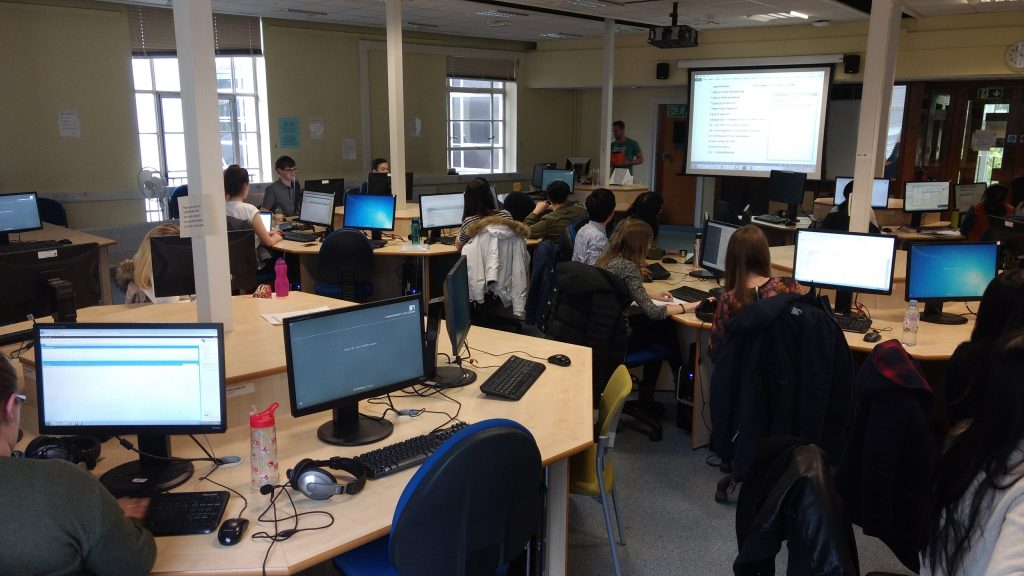 Caption: Guest CTS speaker, Mr. Matej Vlaciha from the European Commission, giving a masterclass on Regular Expressions for CAT tools users to the University of Leeds Centre for Translation Studies students
Caption: Guest CTS speaker, Mr. Matej Vlaciha from the European Commission, giving a masterclass on Regular Expressions for CAT tools users to the University of Leeds Centre for Translation Studies students
Dragoș noted that “it is no longer realistic to expect translation graduates to become successful linguists without a strong understanding of the technologies, as well as the roles of the people involved in a localization workflow.”
He believes that students should have ample opportunity to practice, break and fix software, and ask questions. This allows them to feel in control of the processes, understand the rationale of the technology, and then influence future optimized implementations.
A mix of traditional “high-level” fields and vocational training
“The translation industry is dependent on the optimal use of language technologies, which do change the way linguists work – starting with more or less helpful segmentation, varying degrees of context available, the propagation of sub-par previous translations, and going as far as requiring new sets of skills for new roles such as machine translation post-editing,” he observes.
As a result, the CTS has adjusted its courses accordingly. They have managed to combine the traditional “high-level” fields of translation education with state-of-the-art technology training, which “in some eyes of the academic community” is viewed “as not proper high-level academic training,” in addition to other elements of vocational preparation. In Leeds, they not only provide their students with theoretical knowledge but also with the practical experience that has proven to be tremendously helpful to graduates when looking for their place in a fast-paced translation market.
“You can’t just mention the processes once and expect people to be familiar with them.”
Dragoș’s MAATS is a year-long, project-based program where translation theorists meet freelance professionals and technology specialists to provide a complete vocational and academic education to students. “I am a big fan of the practical applied stuff because this is what students really need as soon as they leave the university,” he explains, “but I think it’s going to be good for them if they’re motivated to think about more abstract things as well. Once they get out into the field of work, I am not sure how many opportunities they’ll have to sit back and really think hard about stuff.”
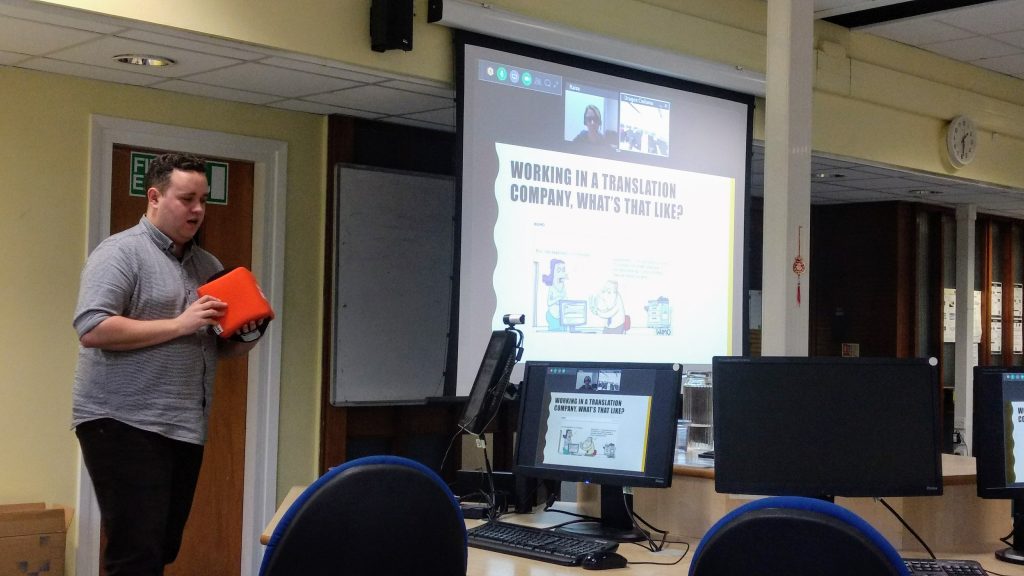 Caption: Guest CTS speakers, Ms. Raisa McNab and Mr. Ryan Bury from STP - Ryan is shown holding a Catchbox, a powerful tool to boost students’ in-class engagement
Caption: Guest CTS speakers, Ms. Raisa McNab and Mr. Ryan Bury from STP - Ryan is shown holding a Catchbox, a powerful tool to boost students’ in-class engagement
Being advocates for project-based learning in Leeds, they believe that “you need at least three practice student projects. By the third project, everyone is comfortable and confident. You really need to practice these skills; you can’t just mention the processes once and expect trainees to be familiar with them.” Dragoș added that “students are generally most motivated by realistic tasks,” so it is necessary to modify the courses accordingly and allow students to practice by working with NGOs.
Programs responsive to current market demand
Outside of MAATS, the CTS also offers an MA in Conference Interpreting and Translation Studies (MACITS) and an MA in Audiovisual Translation Studies (MAAVTS), where “students acquire captioning, subtitling, and live-captioning skills, and become familiar with leading subtitling and speech recognition tools”. These have become increasingly important because the British TV channels “are falling under access requirements and have regulated captioning quotas, which led to growing demand. As a consequence, the major subtitling companies now rely exclusively on speech recognition tools.” Graduates learn that they can gain a substantial professional advantage if they remain responsive to the current market trends.
Aside from the aforementioned activities, Dragoș is an active member of the EMT network, a project of the European Commission. In addition to implementing project-based learning activities into translation courses, Dragoș has been co-chairing a special interest group that is investigating best practices for collaborative translation training. He is also contributing to industry-academia initiatives such as ELIA-Exchange and the LocalizationWorld Attracting and Developing Talent group, as well several projects. These projects include: DigiLing, in which the consortium will be building freely-accessible training resources for digital linguists; ORCIT, which produces online multilingual and multimedia interactive training resources for conference interpreters; and lastly, Dragoș is involved in the TranslationCommons initiative to revive the eCoLoRe, eCoLoMedia and eCoLoTrain projects, which produces free online training resources for professional linguists.
All in all, the MAATS program outlines precisely how to structure a modern translation program that remains responsive to real market needs. This creates highly-capable graduates who become proficient in languages, translation theory, technology, project management, and field expertise. As a result, the graduates’ employability significantly increases and the infamous gap between the academia and the industry continues to narrow.
About the author
Filip Šanca is the Academic Account Manager at Memsource, working with translation professors and students participating in the Academic Program around the world. He is currently working on his master’s degree in Serbian philology at Charles University.
If you would like to take advantage of Dragoș’s experience and enhance your courses, do not hesitate to send Filip a message at filip.sanca@memsource.com

